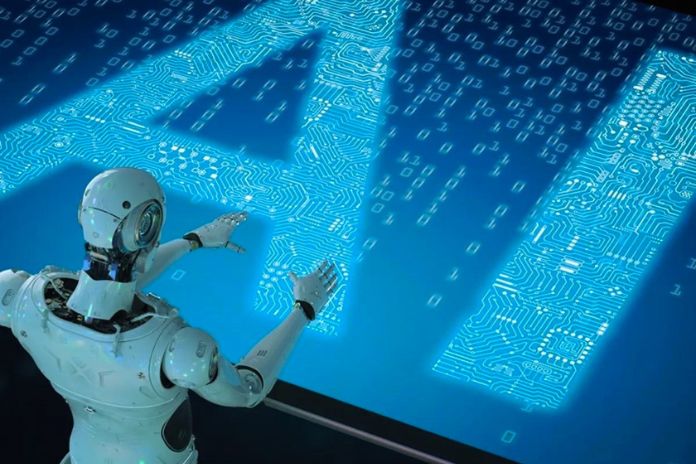Artificial intelligence (AI) will change the world of work and also cover management tasks: AI systems promise to relieve repetitive activities and should give managers more time for personnel management and strategic planning. At the same time, AI as an element in direction can unsettle employees and raise legal and organizational questions.
Leadership with AI support should therefore be based on participation, openness, and transparency and requires new skills from managers.
ALSO READ: Optimising Order Processing: The Interaction With The ERP
Artificial intelligence (AI) has been changing the world of work for several years. To remain competitive with innovative products in the coming years and decades, it will become strategically crucial for companies to integrate AI systems into their business models and operating processes. AI is thus gradually becoming an essential and new element in the work context and business organization and is leading to a redesign of the division of labor between man and machine. The introduction of AI in companies offers opportunities and potential both for employees, for example, in relief through AI systems, and for companies, for instance, in process improvements or new business models.
In the future, AI systems will support tasks in the office and the factory or be able to completely take over these tasks previously reserved for humans, despite all the industrialization and automation of modern times. This primarily applies to repetitive routine activities at all levels of responsibility and hierarchy across all domains and all processes. For the employees, using AI means even more flexibility, the performance of more demanding activities, individually adapted information, and relief from monotonous mental routine activities, and thus more space for more creative and cognitively valuable activities.
In corporate and personnel management, executives are already using digitized and (partially) automated software tools for many vital tasks. Corresponding AI systems, therefore, also have the potential to become essential tools of contemporary management. In the white paper Leadership in Transition: Challenges and Opportunities through Artificial Intelligence, the Work/Human-Machine Interaction working group of the Learning Systems platform shows how the role of managers is changing in the age of AI and what needs to be done to ensure that the use of AI in the company succeeds.
Managers take on different roles as development, design, organization, and motivation actors and fulfill other tasks within these roles. Thanks to AI automation potential, which comes into play above all in administrative coordination and control tasks and decisions, managers now have the opportunity to focus their resources and attention on innovation-promoting and strategic management tasks or the management and motivation of employees.
Automatable administrative and organizational tasks are taken over by AI-supported software. AI systems can be used, for example, to monitor defined company goals, support the composition of teams or duty and shift planning, and can be used to customize further training plans and content. In recruiting, AI systems can pre-sort applications. AI-based early warning systems alert managers to overwork among employees and can thus counteract work-related mental disorders in good time.
Privacy And Transparency
For many of these tasks, AI systems must be trained with sensitive, personal, and process-related employee data and work with this data. In principle, the collected data could be used for unjustified evaluations and conclusions about the employees, such as for automated recording and performance assessment.
The use of AI systems in the management context must therefore protect personal rights and data protection about employee data. A necessary but insufficient basis for this is compliance with the various national and European data protection regulations, such as the GDPR. In addition, it is expedient if applications have a high-risk potential for the protection of the personality of employees.
The responsible and transparent use of AI for managerial tasks is not only crucial from a data protection point of view. The more AI systems support or take over management tasks, the more questions both managers and employees have: according to which criteria and based on which data the AI systems work and make decisions, for example, or make recommendations for the composition of teams? Do managers influence decision-making, and can they reject AI-based advice?
These unanswered questions can cause fears and worries among employees. As a result, this can, in turn, lead to mental stress, which managers must counteract preventively and reactively as part of their statutory duty of care. It is therefore becoming a central task for managers to build acceptance and trust in the systems used by employees. For this purpose, the active involvement of employees and their interest groups (e.g., works or staff council) in the planning and design of AI systems is essential.
As part of this participation, the aim and purpose of the systems should be jointly defined, the areas of application specified and the consequences, above all for mental health, assessed. In addition, managers as contact persons must have an open ear for the reservations and fears of the employees. If executives identify negative psychological stress, they must react to it appropriately. In addition to examining sensible solutions, it can also mean not introducing or extensively modifying an AI system in extreme cases.
Regarding a transparent design of AI, responsibilities and the division of tasks between AI and manager must also be clearly defined and communicated. It must be understandable for employees where the limits of decision-making authority and thus of responsibility for decisions between managers and the AI system run and how a decision is made. If managers have greater scope for action and opportunities to intervene, this not only contributes to more trust in the technology but also prevents managers themselves from becoming demotivated.
The areas of organization and human resources are also very relevant for companies. The focus is on the consideration of opportunities and dangers of AI applications, preventive work design, change management, the integration of AI technology into the structural and process organization of the company, digital personnel development or deployment planning, and ultimately, the qualification of the specialist – and executives who are supposed to use and work with the AI systems.
Skills For Dealing With AI
To finally make the AI systems used as a natural support option, managers must be competently prepared for the new technological tools. On the one hand, this concerns the necessary basic technical skills. In addition, it will be essential to deal critically with the latest tools’ results: The AI systems do not automatically produce better and fairer decisions. AI systems can also make difficult or discriminatory decisions: If distorting data sets are used to train the systems, the AI systems will, in turn, reproduce this so-called bias in their recommendations or decisions.
For example, an AI system for pre-sorting job applications could be trained with the data of employees who have been successfully hired in the past. If these are predominantly male, the algorithm learns to rate applications from men better than those from women. As a result, the AI system could enforce existing discrimination through technical means. Therefore, a responsible human component is essential in decisions made by managers, which comes about based on healthy skepticism, professional intuition, and specialist experience.
In this respect, the ultimate design of the content-related division of labor and the division of responsibility between humans and AI will play a decisive role in the future. If these are predominantly male, the algorithm learns to rate applications from men better than those from women. As a result, the AI system could enforce existing discrimination through technical means.
Therefore, a responsible human component is essential in decisions made by managers, which comes about based on healthy skepticism, professional intuition, and specialist experience. In this respect, the ultimate design of the content-related division of labor and the division of responsibility between humans and AI will play a decisive role in the future. If these are predominantly male, the algorithm learns to rate applications from men better than those from women.
As a result, the AI system could enforce existing discrimination through technical means. Therefore, a responsible human component is essential in decisions made by managers, which comes about based on healthy skepticism, professional intuition, and specialist experience. In this respect, the ultimate design of the content-related division of labor and the division of responsibility between humans and AI will play a decisive role in the future.
Therefore, an ultimately responsible human component is essential in decisions made by managers, which comes about based on healthy skepticism, professional intuition, and specialist experience. In this respect, the ultimate design of the content-related division of labor and the division of responsibility between humans and AI will play a decisive role in the future.
Therefore, an ultimately responsible human component is essential in decisions made by managers, which comes about based on healthy skepticism, professional intuition, and specialist experience. In this respect, the ultimate design of the content-related division of labor and the division of responsibility between humans and AI will play a decisive role in the future.
After all, the use of AI and its focus on data sets means there is a risk of losing sight of the people behind all the parameters used: Therefore, the conscious strengthening of the social dimension of leadership is not only significant when using AI technologies. Instead of an anonymous and technocratic management culture, managers should rely on communication: Personal feedback sessions or approaches such as Management by Walking Around (MBWA) help maintain the human connection between managers and employees.
Despite all the technology, empathetic leadership behavior in business and work processes remains essential. It may become even more relevant because AI can, under bad circumstances, lead to declining human feelings, which would show up negatively in the corporate culture. It is all the more important to think back to the essential managerial tasks: communicating and motivating. If AI systems take on other cognitive tasks, there is more room for them.
AI systems will have a lasting impact on and change tomorrow’s leadership. This can become a real opportunity for a social, humane, sustainable, and innovative management culture. However, as with any technological change, this does not necessarily happen but must be consciously designed against the background of the challenges associated with each change. Companies, managers, and employees must work together to realize people-centered, modern leadership opportunities.









